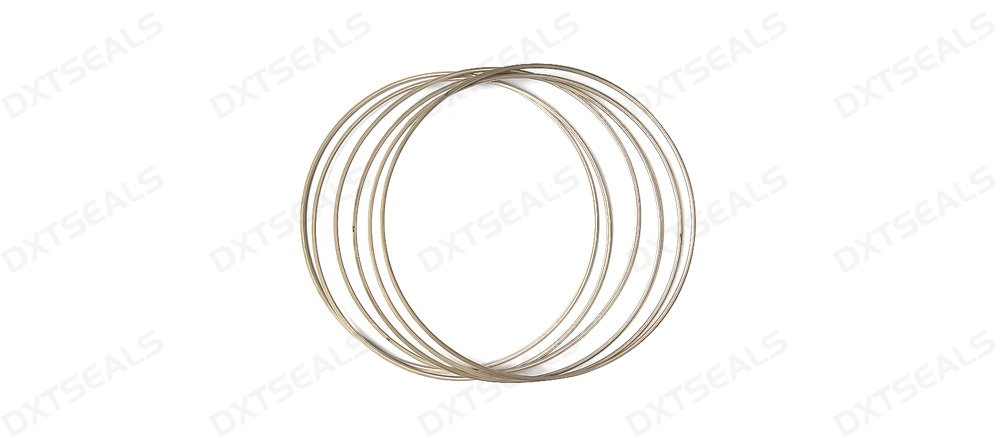
Metal C-ring seals are integral components in many industrial applications, designed to provide reliable sealing solutions in challenging environments. This article will explore the sealing mechanism of these seals and analyze their performance under special conditions, emphasizing their advantages and applications in various industries.
1. What Are Metal C-Ring Seals?
Metal C-ring seals, also known as C-rings or C-shaped seals, are specially designed sealing components made from durable materials such as stainless steel or other alloys. Their unique shape allows for effective sealing in a variety of applications, particularly where traditional rubber seals may fail due to extreme conditions.
2. Sealing Principle of Metal C-Ring Seals
The sealing mechanism of metal C-ring seals relies on their geometric design and material properties. Here's how they work:
- Compression and Elasticity: When installed, the C-ring is compressed between two mating surfaces. This compression generates a sealing force that fills the gaps and prevents fluid or gas leakage.
- C-Shaped Profile: The C-shaped profile allows the seal to adapt to irregularities in the surface, ensuring a tight fit and effective sealing even under varying pressure conditions.
- Material Strength: The robust materials used in metal C-rings provide exceptional strength and resistance to deformation, allowing the seals to maintain their sealing capability under high pressure and temperature variations.
3. Performance in Special Conditions
Metal C-ring seals excel in conditions that may compromise the integrity of traditional seals. Here are some special conditions where they perform exceptionally well:
- High-Pressure Environments: Metal C-rings can withstand significantly higher pressures than rubber seals, making them ideal for use in applications like oil and gas extraction, hydraulic systems, and high-pressure pipelines.
- Extreme Temperatures: These seals are designed to operate in a wide temperature range, from cryogenic levels to elevated temperatures, without losing their sealing capability. This makes them suitable for industries such as aerospace and chemical processing.
- Corrosive Environments: Metal C-ring seals are resistant to chemical corrosion, making them an excellent choice for applications involving aggressive fluids or gases. Materials like stainless steel and Inconel provide additional protection against chemical attack.
- Mechanical Stress: In high-stress applications, metal C-rings maintain their structural integrity and sealing performance, reducing the risk of failure due to wear and tear.
4. Advantages of Metal C-Ring Seals
- Durability: Metal C-ring seals are highly durable, often lasting longer than rubber alternatives, especially in demanding environments.
- Versatility: Their design allows them to be used in a wide range of applications, from automotive to aerospace, making them a versatile sealing solution.
- Cost-Effectiveness: Although the initial cost may be higher than rubber seals, the longevity and reduced maintenance needs of metal C-rings can lead to cost savings over time.
5. Applications of Metal C-Ring Seals
- Oil and Gas: Used in drilling equipment and pipelines, metal C-rings provide reliable sealing solutions in high-pressure and corrosive environments.
- Aerospace: Essential for sealing fuel systems and hydraulic components, metal C-rings perform well under extreme temperatures and pressures.
- Chemical Processing: Their resistance to harsh chemicals makes them ideal for sealing in reactors, pumps, and valves.
- Automotive: Used in high-performance engines and transmission systems, metal C-rings ensure tight seals under variable pressure and temperature conditions.
6. Conclusion
Metal C-ring seals are a vital component in many industrial applications, offering superior sealing capabilities in high-pressure, extreme temperature, and corrosive environments. Understanding their sealing principle and performance characteristics helps engineers and procurement specialists make informed decisions when selecting sealing solutions for challenging conditions. By choosing metal C-rings, industries can enhance reliability, reduce maintenance costs, and ensure optimal operational efficiency.
